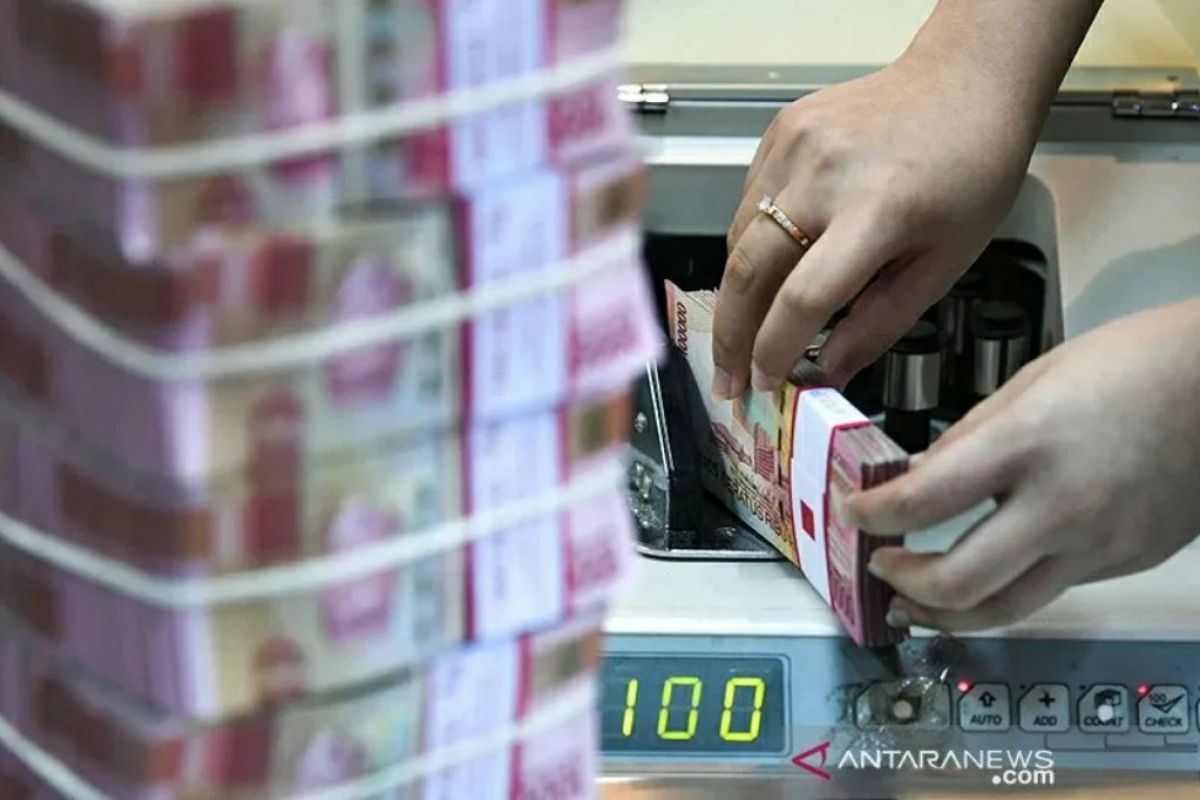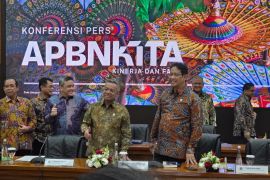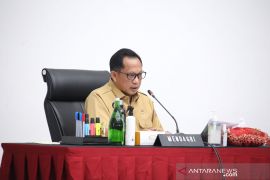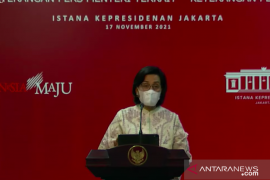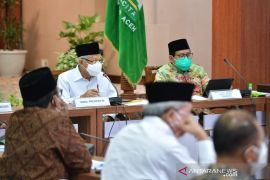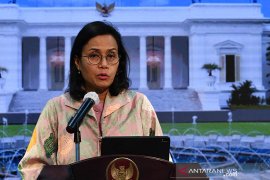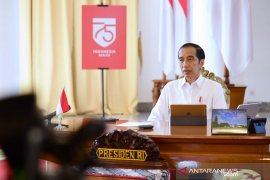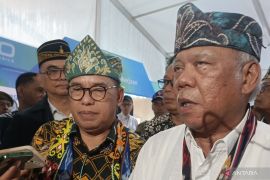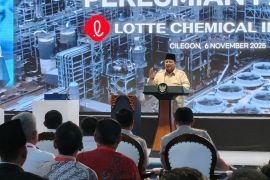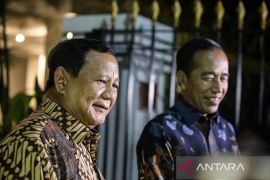He ordered his aides to improve ministerial budget spending, noting that expenditure in the health sector has only reached two percent of the budgeted Rp75 trillion.
The President also highlighted the need for promptly disbursing social assistance and ensuring that micro-, small-, and medium-scale businesses receive the necessary economic stimulus.
“The atmosphere in the last three months and in the next three months should be one of crisis. ... I see there are still many of us who [are still acting] as usual. I'm annoyed," he said in a video released on June 28, 2020.
He expressed annoyance at the “lack of sense of crisis” among his ministers, and threatened to dissolve certain institutions or carry out a cabinet reshuffle, if necessary.
Jokowi has been repeatedly reminding ministers to move fast in spending their allocated budgets, including for MSMEs, the health sector, and providing social benefits for the poor, so that jobs can be created and the economy, which has been dealt a severe blow by the COVID-19 pandemic, can recover.
"I have ordered all ministries and institutions to spend the existing budget, and I am monitoring it every day," Jokowi said on June 30, 2020.
The President said he has been keeping tabs on the budget disbursals of each ministry and state agency on a daily basis.
The head of state highlighted the need to expedite budget disbursals by ministries to increase money supply and stimulate the economy.
"Do not allow the decrease in the level of money in circulation to further continue. We must continue to push these expenditures, so that the circulation of money in the community can increase," President Jokowi noted.
Earlier, on June 3, 2020, Finance Minister Sri Mulyani Indrawati said the government has spent Rp677.2 trillion to tackle the COVID-19 pandemic.
"The Rp677.2 trillion consists firstly [of] Rp87.55 trillion for the health sector, including spending on handling COVID-19, medical personnel, death benefits, contribution assistance for national health insurance, task force financing, and tax incentives in the health sector," she explained.
A second portion of the total spending, amounting to Rp203.9 trillion, is meant for providing social protection in the form of the Family Hope Program (PKH), food staples, social assistance for Jabodetabek (Greater Jakarta), non-Jabodetabek social assistance, Pre-Employment Cards, extending electricity discounts to six months, and managing logistics for food and direct cash assistance (BLT) for village funds.
A third portion of the spending is meant for providing support to MSMEs in the form of interest subsidies, placement of funds for restructuring, and supporting working capital for MSMEs, with loans of up to Rp10 billion, and spending on guarantees for emergency working capital loans.
The fourth portion of Rp120.61 trillion has been allocated to provide incentives to businesses to ensure their survival through taxation relaxation and other stimulus.
"Fifth, financing and corporation include state capital injections (PMN), reasoning for emergency working capital loans for labor-intensive non-MSMEs, as well as spending for risk premiums for working capital loans for labor-intensive industries, whose loans are [in the range of] Rp10 billion-Rp1 trillion," Indrawati stated.
Financing would include guarantees for several SOEs and a bailout fund of Rp44.57 trillion. Agencies that fall in the category of corporate financing include SOEs, labor-intensive corporations above Rp10 billion-Rp1 trillion, and non-labor intensive businesses.
Meanwhile, Rp97.11 trillion in support has been earmarked for sectoral as well as ministries and institutions in addition to regional governments.
"Hence, the total cost for handling COVID-19 has reached Rp677.2 trillion," Indrawati noted.
Meanwhile, Minister of Public Works and Public Housing (PUPR), Basuki Hadimuljono, said: "The state budget is the only instrument that can be used for economic recovery.”
The state budget can boost economic growth as exports, imports, and investments have been disrupted due to the pandemic.
Hadimuljono drew attention to President Joko Widodo’s statement that all ministries and institutions should give thought to the dire situation and jointly share the burden during the pandemic.
In fact, the President has specifically ordered the cabinet to expedite the disbursal of funding for the payment of COVID-19-related health services, and, if found necessary, streamline procedures at the Health Ministry.
Widodo has put emphasis on implementing more simplified procedures for fund disbursal at the Health Ministry, including for compensating families of dead patients and providing incentives to medical and laboratory workers.
In response to the President's instruction, the Ministry of Finance has intensified coordination and synergy with relevant ministries and institutions to spur budget absorption in the health sector for swift response to the COVID-19 pandemic.
Budget absorption in the health sector is yet to reach the optimal level owing to obstacles encountered in the administrative process, Febrio Nathan Kacaribu, head of the Ministry of Finance's Fiscal Policy Agency (BKF), stated on July 3, 2020.
"This is an administrative issue, which, in our opinion, can be tackled, and the process can be accelerated. It is expected that through better coordination in the coming weeks, we will see better (spending) realization," he remarked during an online discussion.
He suggested the Health Ministry streamline the processes and procedures for budget disbursal and spending.
Complex data verification procedures would lead to delays in the disbursal of funds, particularly for regional hospitals, thereby resulting in less-than-optimal budget absorption, he said.
Kacaribu is optimistic that increased coordination would expedite the disbursement of the budget, including for provision of incentives and benefits to deceased health workers.
Of the total Rp87.55-trillion budget allocated for the health sector, some 4.68 percent has been absorbed as of June 24, 2020, according to Kunta Wibawa Dasa, an expert with the Minister of Finance's State Expenditure Division.
Claims for reimbursing COVID-19 patient care costs have been realized to the tune of 62.5 percent of the total claims submitted by the hospitals, while the rest still await completion of documents.
"As many as 21,080, or 11.82 percent, health workers have been offered medical personnel incentives, particularly in hospitals handling COVID-19 cases," he added.
Related news: Synergy instrumental in boosting budget absorption in health sector
Related news: North Sumatra readies Rp500-billion for 2nd-phase handling of COVID-19
Editor: Rahmad Nasution
Copyright © ANTARA 2020
